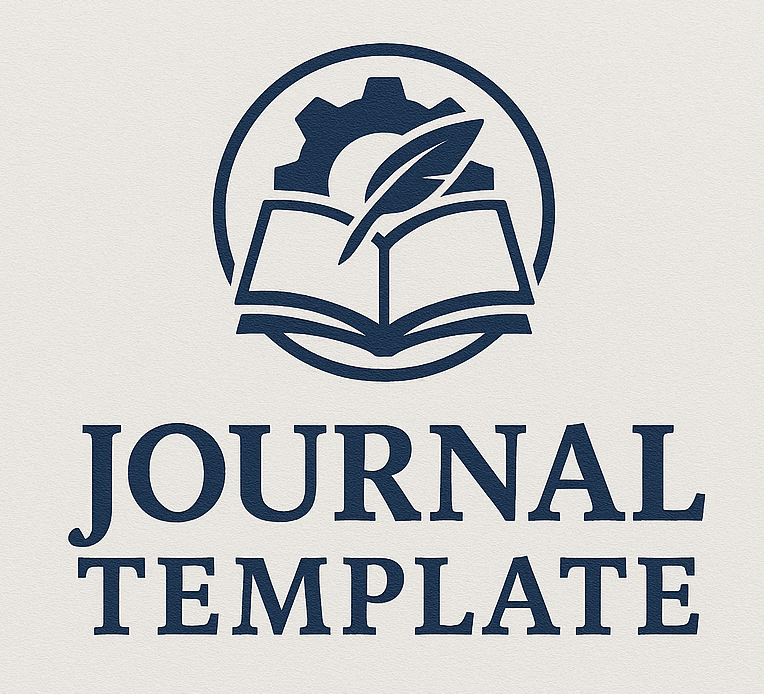The Effectiveness of the Reading, Mindmapping, and Sharing (RMS) Learning Model in Improving Students' Learning Outcomes in Road and Bridge Construction
DOI:
https://doi.org/10.21831/jpts.v5i2.63504Keywords:
Effectiveness, Learning Model, RMSAbstract
Background: The principal aim of this study was to evaluate the impact of employing the Reading, Mind Mapping, and Sharing (RMS) learning strategy on student learning outcomes within a course focused on road and bridge construction. The motivation for c conducting this research arose from the observation that SMK Negeri 1 Sumedang students exhibited inferior performance compared to their KKM peers in the context of road and bridge construction.
Methods: Furthermore, limited research has explored the implementation of student-centred educational models within this specific realm. To address these concerns comprehensively, researchers opted to utilize a quasi-experimental strategy encompassing a non-equivalent control design. Data collection involved gathering information before the implementation of intervention methods through pre-tests and subsequently following up with post-tests post-intervention.
Result: A detailed analysis of the gathered data demonstrated clear discrepancies in learning outcomes between both experimental and control groups. Additionally, A notable discovery involved calculating normalized gain (N Gain) values for participants utilizing RMS model techniques. Such calculations indicated a moderate level of enhancement, as apparent through median value determinations yielding 0.553. Additionally, outcomes among exceptionally effective participants yielded impressive N gain percentages, standing at around 55.26 percent.
Conclusion: Accordingly, it can be concluded without doubt that implementing teaching techniques based on RMS (Reading, Mind Mapping, and Sharing) principles hold substantial promise in enhancing student comprehension levels within road and bridge construction curriculums.References
Amin, R., & Rahayu, S. (2021). Penerapan Metode Pembelajaran DRILL Pada Pendidikan Menengah Vokasi. VOCATECH: Vocational Education and Technology Journal, 2(2), 100–107. https://doi.org/10.38038/vocatech.v2i2.52
Anzelina, D., & Tamba, I. P. (2020). Perbedaan Model pembelajaran mind mapping dengan model pembelajaran problem based learning dalam meningkatkan hasil belajar siswa pada mata pelajaran IPA kelas IV SD Negeri 068003 Medan. Jurnal Ilmiah Aquinas, 3(2), 249–265. https://doi.org/10.54367/aquinas.v3i2.765
Arikunto. (2015). Dasar-Dasar Evaluasi Pendidikan (Edisi 2, Cetakan keempat). Bumi Aksara.
Azizah, & Kristiyanti. (2019). The Influence Of Reading, Mind Mapping, And Sharing (Rms) Learning Models On Results Of Learning Science In Students Of Class V SDN Werdoyo Grobogan. Jurnal Dikdas, 7(2001), 109–116.
Diani, R., Julia, O. N., & Rahayu, M. (2018). Efektivitas Model RMS ( Reading , Mind Mapping and Sharing ) Terhadap Concept Mapping Skill Peserta. Indonesia Journal of Science and Mathematic Education, 01(1), 41–48.
Fayakun, M., & Joko, P. (2015). Efektivitas Pembelajaran Fisika Menggunakan Model Kontekstual (CTL) dengan Metodepredict, Observe, Explain terhadap Kemampuan Berpikir Tingkat Tinggi. Jurnal Pendidikan Fisika Indonesia, 11(1), 49–58. https://doi.org/10.15294/jpfi.v11i1.4003
Ganiev, A. G., & Abdunazarova, Z. (2021). Biophysics Of Brain Activity. Brain Activity In The Development Of "Creative Thinking" "Mind Map." Turkish Journal of Computer and Mathematics Education (TURCOMAT), 12(4), 1–6. https://doi.org/10.17762/turcomat.v12i4.452
Greenstein, L. M. (2012). Assessing 21st century skills: A guide to evaluating mastery and authentic learning. Corwin Press.
Hake, R. (1998). Interactive Engagement Versus Traditional Methods: A Si Thousand Student Survey of MechanicsTest Data for Introductory Physics Courses. American Journal of Physics, 64–74.
Komang, P. M., Dalam, P. M., Motivasi, M., Switara, K. A., & Teknik, P. (2020). Penerapan MPK-BPKB Dalam Meningkatkan Motivasi dan Hasil Belajar Siswa pada Mata Pelajaran PKK Program Keahlian DPIB di SMK DIY. Jurnal Pendidikan Teknik Sipil, II(1), 52–64.
Kustian. (2021). Penggunaan Metode Mind Mapping Dalam Meningkatkan Hasil Belajar Siswa. Jurnal Inovasi Riset Akademik, 1(1), 30–37.
Mardhiyah, R. H., FajriyahAldriani, S. N., Chitta, F., & Zulfikar, M. R. (2021). Pentingnya Keterampilan Belajar di Abad 21 sebagai Tuntutan dalam Pengembangan Sumber Daya Manusia. Jurnal Pendidikan, 12(1), 29–40.
Muhlisin, A. (2017). Inovasi Model Pembelajaran RMS untuk Meningkatkan Kecakapan Abad 21. Prosiding Seminar Nasional Hayati V, 27–36.
Nurdyansyah, & Fahyuni, E. F. (2016). Inovasi Model Pembelajaran sesuai kurikulum 2013. In Nizmania Learning Center.
Pangabean, S., Lisnasari, S. F., Puspitasari, I., Basuki, L., Fuadi, A., & Firmansyah, H. (2021). sistem student center learning dan teacher center learning. In Arif Munandar (Ed.), Media Sains Indonesia. Media Sains Indonesia.
Rahayu, S., & Iswardhany, R. (2020). Pengaruh Kecerdasan Emosional Terhadap Penyelesaian Tugas Terstruktur Mahasiswa Prodi Pendidikan Teknik Bangunan Upi. Jurnal Pendidikan Teknik Sipil, 2(1), 24–36. https://doi.org/10.21831/jpts.v2i1.31963
Sajidan. (2018). Peningkatan proses pembelajaran dan penilaian pembelajaran abad 21 dalam meningkatkan kualitas pembelajaran SMK. Kemendikbud.
Sapoetra, bagoes perdana. (2019). Efektifitas Penerapan Mind Mapping Dalam Meningkatkan Hasil Belajar IPA Pada Beserta Didik Sekolah Dasar. ELSE Elementary School Education Journal, 3, 87–97.
Sugiyono. (2019). Metodologi Penelitian Kuantitatif dan Kualitatif dan R&D. ALFABETA.
Widyaningsih, S. W., Mujasam, & Yusuf, I. (2019). Effect of RMS models (reading, mind mapping and sharing) based on e-learning to the learning outcomes of students in the teaching and learning subject. Journal of Physics: Conference Series, 1321(3), 1–6. https://doi.org/10.1088/1742-6596/1321/3/032062
Yusuf, B. B. (2017). Konsep Dan Indikator Pembelajaran Efektif. Jurnal Kajian Pembelajaran Dan Keilmuan, 1(2), 13–20.













